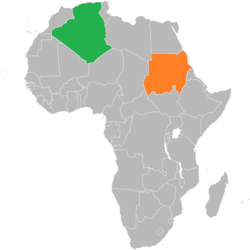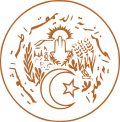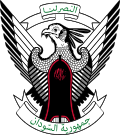 | |
Algeria | Sudan |
|---|---|
Despite both being in the core of the Arab nationalist movement, Algeria and Sudan have been greatly different from each other. Algeria tends to be secular, but Sudan is much more Islamist-oriented and has an unstable relationship with neighboring countries like Egypt, Chad, Ethiopia, Libya, and South Sudan. Therefore, there has been a lack of cooperation between the two nations. [1] Nonetheless, the two countries have been expanding their relations.
Contents
Algeria has an embassy in Khartoum while Sudan has an embassy in Algiers. Before 2011, Sudan and Algeria were respectively, the first and second largest African countries as well as the first and second largest Arab countries, but after 2011, Algeria became the largest African and Arab country.

